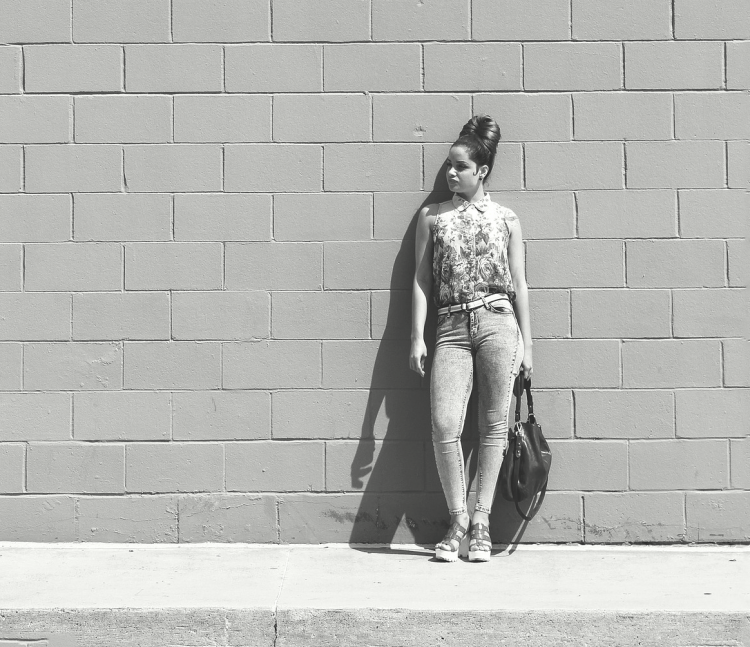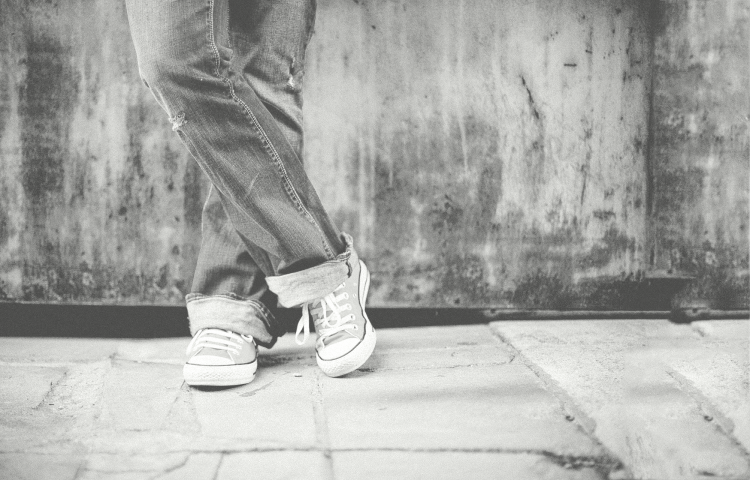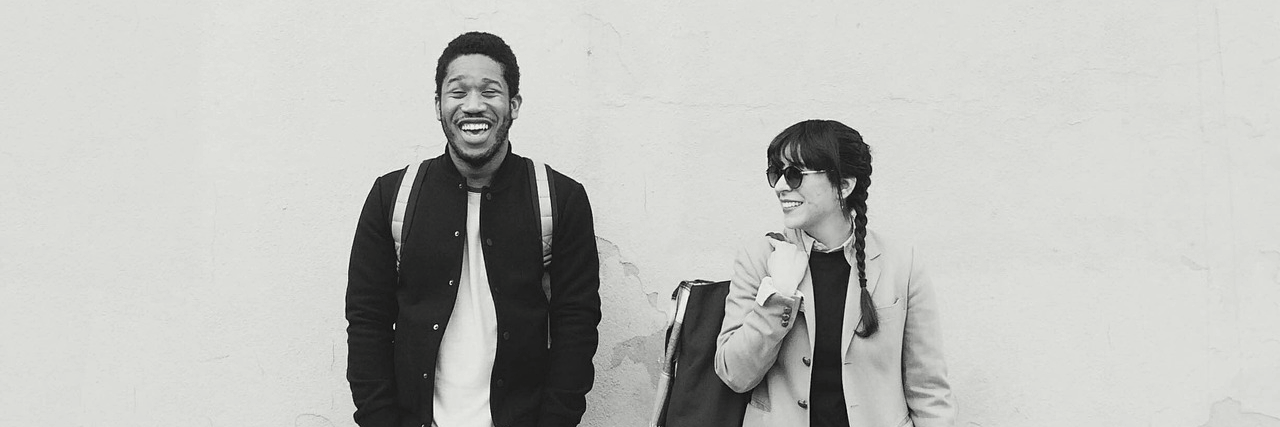4 Back to School Hacks for Students With Invisible Disabilities
By Linda Williams, Ph.D., and Monica Slabaugh
Your stomach is knotted. But you’ve prepared. New backpack, new shoes, cool cut. Outwardly, you fit in with your peers. Yet only you could know about the invisible disability within you that no one else can see. The thing that makes you different. Not “normal.”
Stop right there.
Here are some hacks to help those of us with invisible disabilities relax a bit as school begins. We begin with:

Hack #1: Normal is a fantasy.
Bodily and neurodiversity among our school peers is the factual “normal.” The human is imperfect, unruly, and real. This whole notion of carefree, easy brilliance, easy beauty, easy health is a fantasy. And one that puts too much pressure on the majority of us who may be a little different. What is the standard for “normal” that we hold ourselves up against? What is that pressure that can leave us feeling less than others?
There’s a name for this perfect version of the human that is quietly cherished in our culture. We’re talking about the normate, a mythical human who is unmarked by identities that have been culturally stigmatized.* Think race, gender, sexuality, disability.
As you’re wandering the halls this fall on the first day of school, don’t bother keeping a lookout for this normate character. He’s a fantasy. And knowing that normal is a fantasy is the first step toward disengaging the fantasy.
 Hack #2: Don’t let FOBO get you down.
Hack #2: Don’t let FOBO get you down.
Why should anyone ever be ordinary, when they could be exceptional instead? All it takes is determination, willpower, effort, and a positive attitude, right? No. Just stop. This hack is all about recognizing that FOBO, the fear of being ordinary, is real. And then, making a decision to push back against it.
Here’s the reality: our diverse bodies and minds have different needs, and sometimes we may be on a
completely different timeline than that of our peers. This may feel especially familiar for those whose invisible disabilities may fluctuate from day to day or hour to hour. Sometimes you’re able to do things, and other times you’re not. Both are OK.
Whether it’s school, family, or a peer group, the social world around us can be unyielding. And sometimes, these pressures can make room for FOBO to creep in. We begin fearing that even when we’re doing all we can, we’re still not enough. Not involved enough. Grades aren’t good enough. Not able to socialize enough. Not healthy enough. Just not enough.
Anyone can feel the effects of FOBO, but for some of us with invisible disabilities, FOBO can do serious damage if left unchecked. FOBO moves in and tells us, “do more, try harder, push through it.” But our bodies may really need rest, self-care, and space. If you start feeling FOBO, maybe it’s time to pause, and take advantage of this hack: listen to your body.
This school year, practice saying “yes” to the things you can do, and “no” to the things you can’t. You’ll find it’s OK to let the fear of saying “no,” and the fear of being ordinary, fall away.

Hack #3: Your identity is yours.
No one can tell you who you are, or who you are not. And this hack takes you to the center of identity during the school years. Identities evolve. Yes, that’s right. There is a constant interaction going on between your own bodily and neurodiversity and the changing environment around you. We are not fixed.
No matter our bodily state, our gender, or our sexual preference, as the days move and our environments flux, so can our identities. While it may not apply to everyone, identities do evolve and that’s more of the rule than the exception. It is perfectly OK to claim the identity that works for you right now, and to change that identity again later, if it feels right to you. Only you own you. Period.

Hack #4: Disrupt the silence.
Now that we understand normal is a fantasy, we can guard against FOBO, and our identities belong to us, this final hack takes it to the next level. If you have an invisible disability and you feel isolation creeping in because you are just feeling too different, speak out. Silence can be golden when it is directed. But let’s get clear: when silence is a reaction to isolation or shaming, it is time to speak out and make some noise.
Disrupting the silence brings your voice to fore. We all have the right to coexist, no matter our bodily or neurodiversity, and no matter our identity. When we disrupt silence, we reclaim our identity, our voice, and our personal agency to move through our social world with confidence and personal freedom.
*The term “normate” was coined by Rosemarie Garland Thomson in Extraordinary Bodies: Figuring Physical Disability in American Culture and Literature.
Learn more at Invisible Disability Project.

